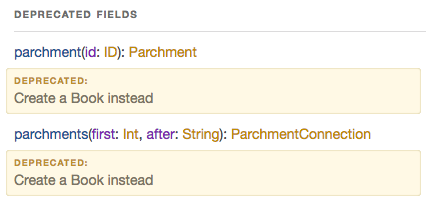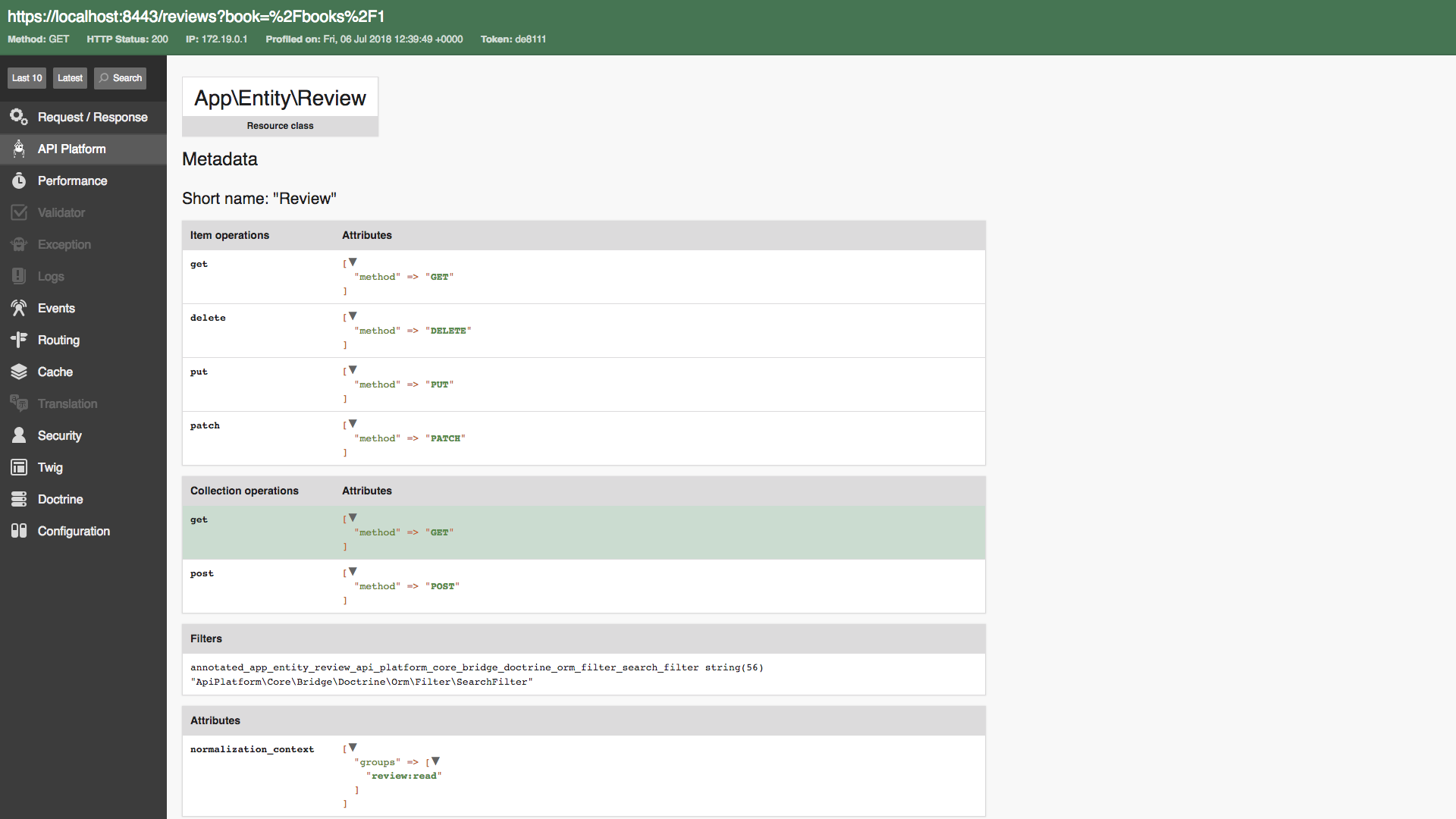
Today, the API Platform framework has reached 3k stars on GitHub, and it makes us very proud! To celebrate, I’ve just tagged the 2.3 version, that comes with a lot of amazing new features. Let’s discover them!
For newcomers, API Platform is a modern open source framework for API-driven projects. It allows, in just a few minutes, to expose hypermedia and GraphQL APIs. It also provides client-side tools leveraging the capabilities of auto-discoverable APIs: the admin interface and the React and Vue.js Progressive Web App generator. Finally, API Platform has been designed from the ground up as a Cloud Native solution that can run locally with the built-in Docker setup and be deployed instantly on a Kubernetes cluster (Heroku is also supported).
40% faster than the previous version!
We’re committed to continuously improving the performance of API Platform. In version 2.1, we’ve added an amazing invalidation-based cache mechanism. When enabled, HTTP responses are generated only one time then stored and served by a reverse caching proxy. When a resource is modified, all responses including or referencing it are automatically removed from the cache.
In version 2.3, Ben Davies has done an excellent job at profiling and patching the core component. Moreover, we’ve worked closely with the Symfony team to dramatically improve the performance of the Symfony Serializer component (one of the most important pieces of software used by API Platform).
With all these optimizations put together, in the scenario of a cache miss, API Platform-based apps are now more than 40% faster in version 2.3 compared to version 2.2 (Blackfire comparison):
Upgrading from Symfony 4.0 to 4.1 makes @ApiPlatform 41% faster 😲! Benchmark: https://t.co/dHkvge90SI pic.twitter.com/kEcQI0KpVn
— Kévin Dunglas (@dunglas) May 31, 2018
A big thanks to Ben and to Nicolas Grekas from Blackfire.io for making it happen!
Support for API evolution (aka deprecating fields and resources)
A growing best practice is to use the evolution strategy for web APIs. Creating new versions of the API, of or its endpoints requires modifying all clients to upgrade, even the ones not impacted by the changes. On the other hand, this strategy (also known as versionless APIs) consists of deprecating the fields, resources types or operations that will be removed at some point. Most modern API formats including GraphQL, OpenAPI and Hydra are able to support this strategy.
In API Platform 2.3, we’ve introduced a new attribute to mark deprecated resource classes, operations and properties. All documentation formats generated by API Platform and having support for this feature will then automatically take it into account.
Here is how to deprecate an entire resource:
<?php
namespace App\Entity;
use ApiPlatform\Core\Annotation\ApiResource;
/**
* @ApiResource(deprecationReason="Create a Book instead")
*/
class Parchment
{
// ...
}
As you can see, to deprecate a resource, we just have to explain what the client should do to upgrade in a dedicated attribute. You can also use this new deprecationReason attribute on any operation.
The deprecation will automatically be taken into account by clients supporting the previously mentioned format. Here is how it renders for OpenAPI in the built-in Swagger UI shipped with the framework:

And now in the built-in version of GraphiQL (for GraphQL APIs):

It’s also possible to deprecate a single field:
<?php
namespace App\Entity;
use ApiPlatform\Core\Annotation\ApiProperty;
use ApiPlatform\Core\Annotation\ApiResource;
/**
* @ApiResource
*/
class Review
{
// ...
/**
* @ApiProperty(deprecationReason="Use the rating property instead")
*/
public $letter;
}
All our client-side tools have been updated to ignore deprecated fields, operations and resources by default. The api-doc-parser library (which supports Hydra, and OpenAPI in the latest version) also support this new feature.
Dedicated Profiler Panel and Web Debug Toolbar Integration
Symfony comes with a nice set of development tools, including the Profiler, and it is compatible with API Platform! To install it, execute composer req profiler. Thanks to the contributions of Julien Deniau and Anthony Grassiot, the Web Debug Toolbar now displays an icon featuring our nice spider Webby that is linked to a new profiler panel dedicated to API Platform:


Shorter Attributes Syntax
Defining attributes using annotations can become verbose pretty quickly. As alternatives to annotations, for complex configurations API Platform also supports the XML and YAML formats. However, in version 2.3, Baptiste Meyer added a nicer and shorter syntax to define attributes on the @ApiResource and @ApiProperty annotations:
// Before
/**
* @ApiResource(
* attributes={
* "validation_groups"={"bar"},
* "normalization_context"={"groups": {"book:read"}}
* }
* )
*/
class Book
{
// ...
}
// Now
/**
* @ApiResource(
* validationGroups={"bar"},
* normalizationContext={"groups": {"book:read"}}
* )
*/
class Book
{
// ...
}
Of course the “old” syntax is still valid, but the new shortcuts allow a better discoverability and enable autocompletion in IDEs (if you are a PHPStorm user, install the PHP Annotations plugin to benefit from this new feature).
Revamped Admin
In version 2.3, a lot of love has been given to the API Platform Admin Component. This JavaScript library, maintained by Morgan Auchedé, dynamically constructs a UI for any API supporting Hydra or OpenAPI.
It uses React, and was built on top of the Admin On Rest library. But as you may know, Admin On Rest has been deprecated and Marmelab, the company behind the tool, has released a replacement called React Admin. React Admin comes with an updated fancy interface and it also fixes some design issues.
So we’ve patched API Platform Admin to use the new kid on the block, and we’ve taken this opportunity to also fix a well known annoying issue on our side: the Admin component wasn’t able to deal with embedded relations. This isn’t the case anymore. What’s even better, the Admin is now smart enough to reuse the data already downloaded as embedded relation instead of triggering a new HTTP request. It allows to dramatically improve the performance of the admin!
We’ve also added support for new features introduced by React Admin, including bulk delete.
Other Features
Of course, this new version also includes a lot of new features that are less visible but also very useful. Here is the curated list of some interesting changes:
- Make resource class’s constructor parameters writable
- Add support for interface as a resource
- Throw an exception if a required filter isn’t set
- Allow to specify the message when access is denied using the
access_control_messageattribute - Add a new option to include null results when using the date filter
- Allow data persisters to return a new instance instead of mutating the existing one
- Add a new attribute to configure specific formats per resources or operations
- Add an
--outputoption to theapi:swagger:exportcommand - Drop support for PHP 7.0
- Upgrade Swagger UI and GraphiQL
- GraphQL: Add a
totalCountfield in GraphQL paginated collections - JSONAPI: Allow inclusion of related resources
It is also worth mentioning that Teoh Han Hui has modernized the Docker setup we provide to leverage the new capabilities of this containerization technology.
As usual, thank you very much to all the developers who’ve contributed these new features, bug fixes, and the related documentation entries. You’re the most important part of the project: the community.